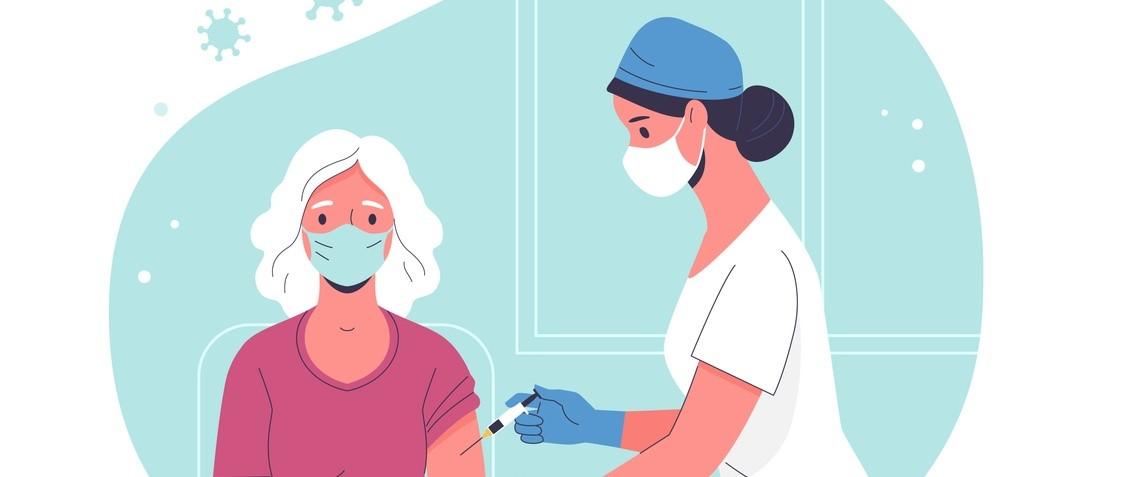
The future of COVID-19 vaccinations
Peer reviewed by Dr Krishna Vakharia, MRCGPAuthored by Gillian HarveyOriginally published 3 Apr 2023
Meets Patient’s editorial guidelines
- DownloadDownload
- Share
- Language
- Discussion
Since the start of the COVID-19 pandemic, many things have changed in the UK. COVID-19 has mutated and more recent variants are linked with fewer hospital admissions. Many of us have now had three or four vaccinations to reduce our risk of serious illness from COVID-19, and many have been infected with the virus and recovered. What does this mean for the future of COVID-19 vaccinations? And might we reach a point where protective measures are no longer necessary?
In this article:
Continue reading below
A different disease
COVID-19 remains a constantly evolving situation, and nothing is certain. However, using existing data, scientists are now able to predict the most likely outcomes.
COVID-19 isn't likely to disappear anytime soon. But with its effects reduced by a combination of vaccination, immunity from being infected, and the overall less intense symptoms of the Omicron variant1, how we deal with it may change significantly in the future.
Ian Jones, professor of virology from Reading University, explains: "The disease today is very different from how it was when the virus first broke out.
"This is partly because most people now have some immunity from antibodies - disease-fighting proteins developed by our bodies during either vaccination or a previous infection - but also because the current strain of virus is less likely to cause severe disease in the general population."
Vaccination and infection
In the UK, most of us have been vaccinated, have contracted COVID-19, or both2, and therefore are likely to have some residual immunity to the virus. This means that even if we are exposed to COVID-19, we are less likely to contract it than someone with no antibodies and, if we do succumb to infection, are likely to present with milder symptoms.
"The COVID-19 vaccinations haven't been around long enough for us to know how long immunity will last," explains Professor Jones. "There's likely to be a slow decline in protection, but you will probably have some beneficial immunity one or even two years out."
Continue reading below
Will we need booster vaccines?
Earlier in the pandemic, healthy members of the public were advised to get vaccinated in order to protect others. However, Professor Jones predicts that future COVID-19 booster jabs are likely to be aimed at the most vulnerable3 - including those over 75, care home residents, and people with compromised immune systems - and offered on a voluntary basis, much like the current flu jab.
"The question of whether you would want to boost existing immunity with an additional vaccine really depends on the strength of the virus and how much it's circulating. There won't be a call for vaccine passports or anything like that - it will be purely voluntary."
An evolving situation
When it comes to science and disease, there are no certainties. However, the fact that viruses do tend to evolve is currently working in our favour with COVID-19, as mutations such as Omicron have proven less of a risk to our health than previous variants such as Delta. However, it's worth remembering that mutations can also make viruses more dangerous.
In the case of COVID-19, many scientists believe that the virus will continue to weaken. That said, when it comes to disease, things are not always straightforward - there are no guarantees.
Continue reading below
The future of the vaccination
In the coming years, the COVID-19 booster is likely to be offered mainly to those who are considered particularly vulnerable to the virus, as is the case with the current flu vaccination.
If COVID-19 continues to weaken, it may be that in future years, vaccination becomes completely unnecessary for all groups.
While it remains important to keep up to date with any developments, when it comes to COVID-19, the future is definitely looking brighter.
Further reading
Continue reading below
Article history
The information on this page is peer reviewed by qualified clinicians.
3 Apr 2023 | Originally published
Authored by:
Gillian HarveyPeer reviewed by
Dr Krishna Vakharia, MRCGP

Ask, share, connect.
Browse discussions, ask questions, and share experiences across hundreds of health topics.

Feeling unwell?
Assess your symptoms online for free
Sign up to the Patient newsletter
Your weekly dose of clear, trustworthy health advice - written to help you feel informed, confident and in control.
By subscribing you accept our Privacy Policy. You can unsubscribe at any time. We never sell your data.